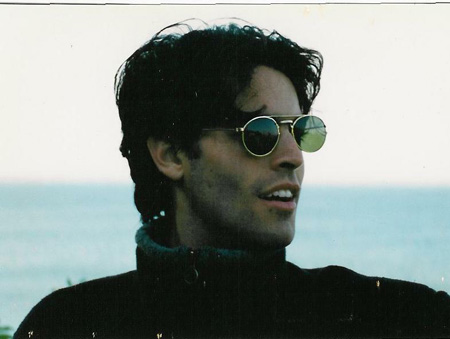
What is your background? Did
you study writing? Journalism?
I got my degree from the University
of Michigan in English literature. During that time, I took one creative
writing class and a
couple of screenwriting classes in
which I learned the basics of storytelling structure. It wasn’t until I
started working in comics
outs of comic book publishing. Sure,
I’d been reading them since I was six, but it was amazing to discover how
little I knew about
what goes on behind the curtain, so
to speak.
Do you read The Phantom and collect
any Phantom memorabilia?
I’ve been reading the Frew editions,
which are great, because they let me see what’s going on in Egmont’s Fantomen
without my needing to learn Swedish! I mean, how weird is it to not be able
to read your own work in its original form?! As for collectibles, I don’t
have all that many. I’ve got a few
of the promo Skull Rings from the movie, two of the Phantom action figures
(the one with the
throne and the one with Hero), a press
kit from the movie, a couple of Australian PVCs, and a framed edition of
teaser poster B—that
real striking one of the Phantom in
the skuil cave with the single shaft of light shining down on him in the
dark. Very cool stuff!
What sort of feedback, advice,
or directions did you get from Ulf?
The best thing about the feedback I
get from Ulf is that it keeps me focused on what their audience expects
from the Phantom. He’ll
usually let me go off in whatever direction
I want, so long as it doesn’t deviate too much from their in-house take
on the Phantom.
Which is perfect, because as much
as I might want to push the envelope, I never want to lose sight of who
we’re doing this for: the fans. Ulf really knows how to strike that balance
between the creative and the commercial, and ultimately, I think the stories
are better for it. Aconfident things will continue that way. Again, it’s
a question of knowing what the boundaries are, and King/Hearst has made
them quite clear. Some people might think this would stifle creativity; on
the contrary, it’s very liberating knowing what is
or isn’t acceptable. It’s simply just
a matter of training yourself to work according to someone else’s rules...
which is just something
you do in order to be a professional.
How would you contrast your work
for Semic to that for Moonstone?
The biggest difference is the audience
I’m writing for. For Egmont, I’m telling stories that are predominantly
for kids ages 8–10. For
Moonstone, the audience is usually
twice that age, so the kinds of things we can get away with are a little
bit more intense.